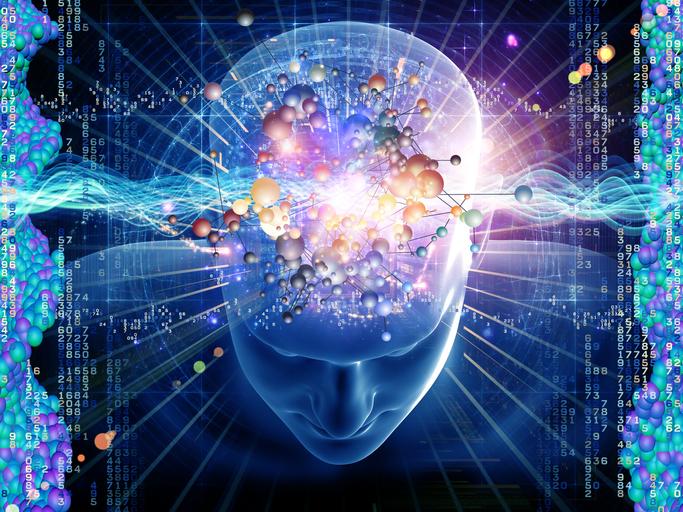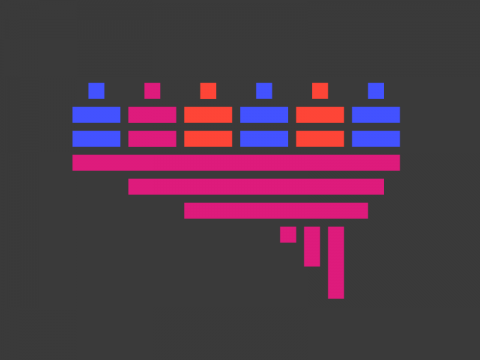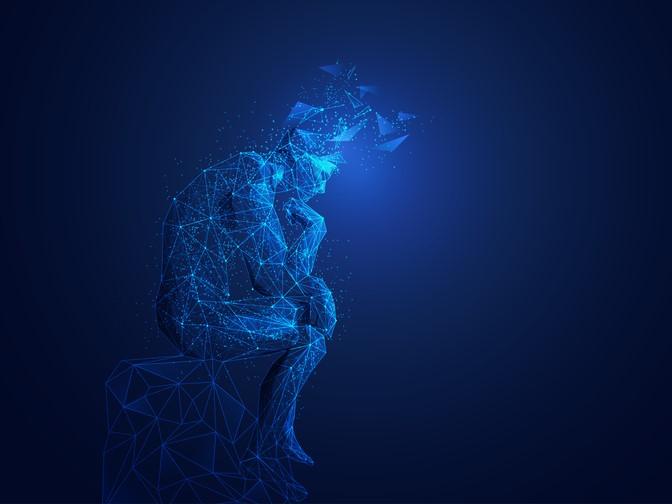
Collaborating with artificial intelligence? Use your metacognitive skills
Metacognition in humans holds the key to ‘collaborative intelligence’ – making the most effective use of the complementary strengths of human and artificial intelligence

You may also like
Australia’s national science agency, the Commonwealth Scientific and Industrial Research Organisation (CSIRO), is investing in a new programme of research called “collaborative intelligence”. Collaborative intelligence refers to the potential to achieve a step-change improvement in performance by designing applications and workflows that utilise the complementary strengths of human and artificial intelligence (AI).
AI outperforms humans in its computational power, making it far better at processing large amounts of data, recognising patterns and predicting outcomes. However, AI struggles to understand common-sense situations, make intuitive decisions and respond to novel situations – tasks that humans can perform well. These complementary strengths, combined with improvements to the conversational capability and situational awareness of AI, mean that collaborative intelligence offers the potential to optimise performance in a range of fields.
- Campus webinar: Artificial intelligence and academic integrity
- ChatGPT and generative AI: 25 applications in teaching and assessment
- Collection: AI transformers like ChatGPT are here, so what next?
A review of artificial intelligence applications found examples of collaborative intelligence being used to perform creative, industrial, healthcare, emergency response and knowledge work. The benefits that these applications achieve range from improvements to efficiency and greater creativity to improved human safety.
If collaborative intelligence applications are to achieve their intended performance benefits, humans will need to be able to collaborate effectively with artificial intelligence. The recent arrival of technologies drawing upon large language models (such as ChatGPT and Bard) has generated much debate about the skills needed to work with new forms of AI. The Collaborative Intelligence Future Science Platform will be focusing on metacognitive skills as an enabler of human-AI collaboration. Metacognitive skills are not well represented in skills taxonomies but they will be familiar to many educators since they are commonly used in learning contexts. In the context of humans collaborating with AI, they are likely to have much broader application, for reasons that we outline below.
Metacognitive skills involve the ability to monitor, regulate and control one’s own cognitive processes. Training in metacognitive skills involves promoting awareness and reflection about one’s thinking, strategies and decisions. For example, while performing a task, participants will be prompted to reflect on whether their activities are aligned with their objectives and, if not, what alternative strategies they might adopt. Metacognitive skills training also makes use of reflective journalling, wherein participants write about their learning experiences and develop strategies for improving their approaches in the future. There is a large body of evidence that metacognitive skills improve learning, problem-solving and decision-making, but why should they be important for collaborating with AI?
Reducing reliance on cognitive heuristics
One of the factors that has the potential to hinder humans in working with artificial intelligence is the cognitive heuristics that humans have developed based on their experiences of interacting and working with humans. Cognitive heuristics (also known as cognitive biases) are mental shortcuts that we have developed to help us make decisions with limited information and time.
For example, when we need to make a judgement about whether a person can be trusted to perform well, we use what we already know about the person to make this judgement. This “halo effect” works well when we have knowledge about the person’s performance on similar tasks. Another technique we use to manage the large volume of information that is available to us is to “anchor” our subsequent decisions and judgements based on the first information we are given.
However, AI learns and performs very differently from humans and, consequently, it can perform extremely well on some tasks and poorly on others. Furthermore, if we allow the AI to influence our own thinking too much, we will fail to add value to the collaboration. Working with AI requires awareness of these biases and greater consideration as to whether the information that we are relying upon is relevant and appropriate for the task or context that we are dealing with.
Dealing with novel and poorly defined problems
Metacognitive skills will also become more important when collaborating with AI because, in the future, humans will be focusing on more novel and poorly defined problems. AI can be trained to deal with problems that are well defined and have been encountered before. However, it performs less well when it encounters a novel problem or context. In the division of labour between humans and AI, the human will be dealing with the novel and ill-defined tasks. It is in these contexts that metacognitive skills add value. Metacognitive skills improve our ability to transfer our knowledge and skills to new and unfamiliar contexts. In addition, metacognitive skills have been found to be particularly beneficial when dealing with complex, open-ended problems that do not have clear solution paths.
Arbitrating in the collaboration
A collaboration is characterised by teamwork, mutual respect, cooperation and co-creation. However, in those situations where the judgement of the AI conflicts with the judgement of the human, the human (due to their superior general intelligence) is likely to be ultimately responsible for deciding whether to trust their own knowledge and expertise or that of the AI. This requires the ability to balance an understanding of one’s own strengths and limitations and the strengths and limitations of the AI. Metacognitive skills allow individuals to make more accurate judgements about their own knowledge and performance. Metacognitive skills also help us to evaluate alternative solutions and adjust our approaches and decisions based on feedback.
Complementing the AI
Finally, new technologies increase demand for human skills that complement the capabilities of the technology. Without self-awareness (and most AI experts agree that AI will not achieve self-awareness in the short term), AI cannot think about its own thinking. Metacognition is a unique human skill that complements AI by helping us be aware of our own biases, the strengths and the limitations of the AI and our understanding of the environment we are working in. Our task will be to ensure that these things are balanced appropriately to arrive at an optimal solution.
AI can hold more information than the human brain, and it can process the information that it holds far more quickly than we can. AI can even be trained to prompt us to consider alternative information as a way of addressing some of our biases and engaging our metacognitive skills. Ultimately, it will be our job as humans to bring metacognitive skills to bear in making use of human and artificial intelligence in the best possible way to achieve unbiased and well-informed judgements and decisions.
Claire Mason is a principal research scientist and leads the technology and work team at the Commonwealth Scientific and Industrial Research Organisation (CSIRO).
Sidra is a postdoctoral fellow at the CSIRO, specialising in collaborative intelligence. Her work centres on optimising collaboration between artificial and human intelligence with a focus on unlocking the full potential of the human mind.
Andrew Reeson is a principal research scientist at the CSIRO, researching the human side of technology. This includes behavioural aspects of human-AI collaboration as well as the social and economic impacts of disruption wrought by new technologies.
Cécile Paris is a chief research scientist at CSIRO. She is passionate about developing the science and technology to ensure humans and machines work better together.
If you would like advice and insight from academics and university staff delivered direct to your inbox each week, sign up for the Campus newsletter.


